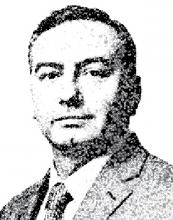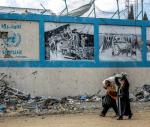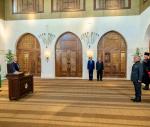You are here
What is the national goal of Jordan?
Aug 19,2018 - Last updated at Aug 19,2018
For decades, the national goal of Jordan was national survival in a turbulent region and an ever changing regional and global order. Approaching a century of state age proved beyond doubt that survival has been established at a considerable political and economic cost. This cost delivered commendable level of national security and stability, and a reasonable level of socioeconomic development. A few more items remain in short supply; efficiency, equity and sustainable economic growth.
The latter is the essence of national survival. In most countries, the order of national goals is national security, followed by economic prosperity. The country’s dire economic situation led to increasingly dangerous loss of confidence in state institutions’ ability to deliver on people’s priorities. Current public policies do not seem to be positioned to change this trend, although they might slow it temporarily. They are, however, set to do more of the same under the banner of economic reform. National survival and economic prosperity require more.
The national economic goal should be based on megaprojects that have the appeal to rally Jordanians around hope in a better future in order to offset the downward trend of disenchantment, disappointment and the sense of disenfranchisement. While Jordanians rally around state symbols; King, flag and army, especially in times of crisis as we have seen in the aftermath of the recent terrorist attack in the tranquil town of Fuheis, they need to have, and deserve, an economic rallying cause that takes them to the future. It is evident that Jordanians’ sense of tolerance with phrases such as “we have to tighten belts”, “we have to accept harsh measures” is waning. Moreover, citizens have grown uneasy about the threatening language often used, such as “if we do not take these measures, the economy will collapse” at the same time when their lack of belief in government seriousness to fight corruption is at unprecedented levels.
Against this backdrop, four “future hope” mega projects must start expeditiously based on build-operate-transfer, none-fund-return models. There is no lack of investors but obviously there has been lack of committed policy planners and makers, otherwise these projects would have been achieved long ago. First, the national rail network connecting Syria to Saudi Arabia, Iraq and Egypt, as well as cities, towns and villages along the way from Ramtha to Aqaba should be built. Along the rail stations, areas ought to be designated to special projects. For example, around the airport, designate a station with a medical city, another with entertainment city, and in Madounah the government should give the land of “the new city” for the rail network builders to develop for residential and commercial purposes as part of their compensation for investment in building the rails. Second, solar power should be generAted in the east to meet the growing demands of the Iraqi, Syrian and Lebanese markets. This requires a consortium of political and economic leverage is Third, the Baptism Site should be made to receive a million Christian pilgrims annually by building infrastructure and doing the global marketing for it, especially from new emerging markets such as China. Fourth, schools in less developed and resource-deprived areas, especially in the south, should be focused on nurturing a technology-driven generation from preschool to high school. An information technology city can nurture this generation and utilise its potential. This needs a serious investment in IT and English language education by increasing the number of teachers and class/lab hours in each school and reducing hours of less relevant subjects.
Building human and economic capital by executing these projects has the potential of reversing the tide with positivity and hope instead of fear and hopelessness. Jordanians deserve more respect and better economic prospects.
The writer is chairman of NAMA Strategic Intelligence Solutions. He contributed this article to The Jordan Times













